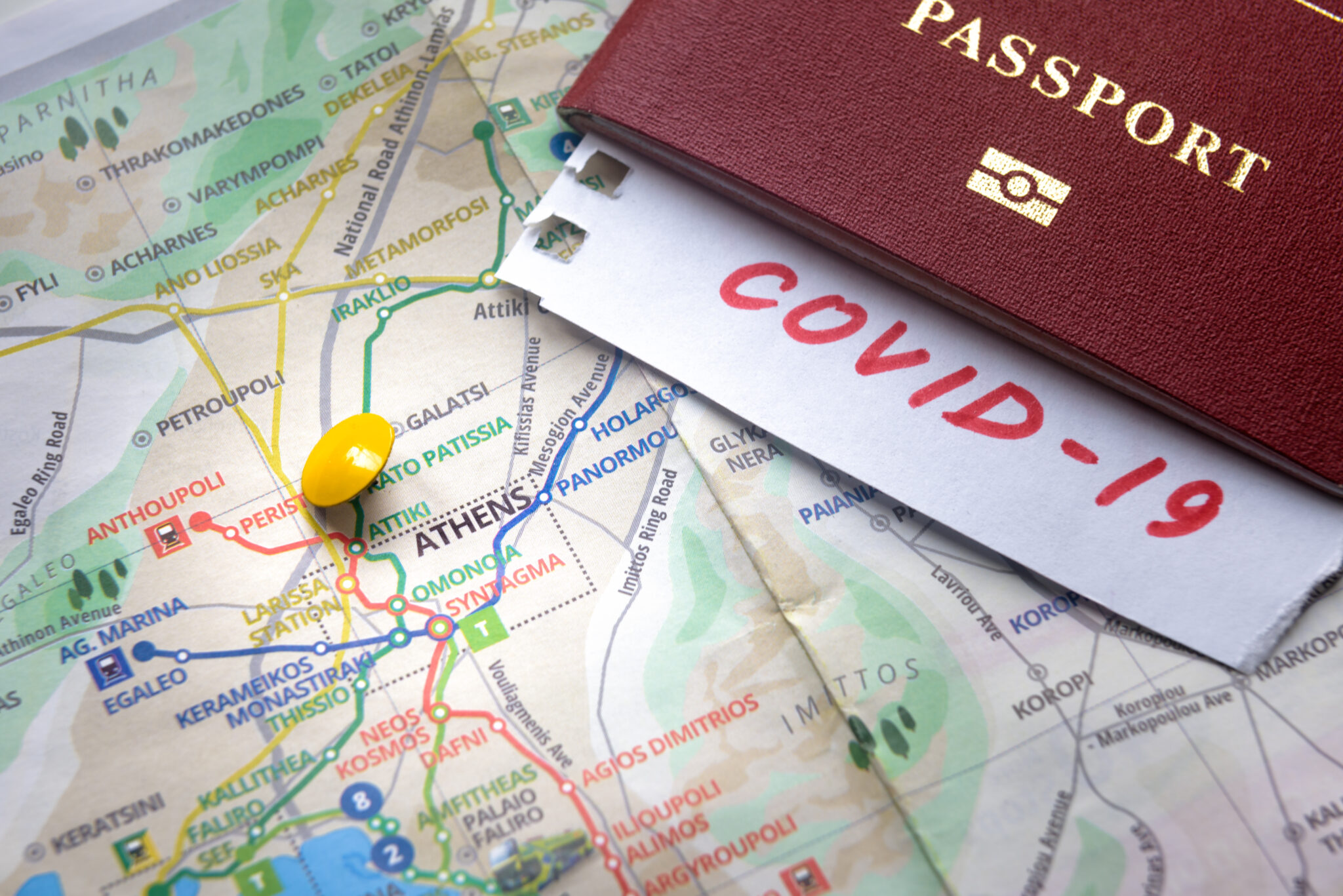Greece welcomes travellers from abroad this year and wishes them a wonderful holiday experience. As the threat of coronavirus has not yet been eliminated, the country has opened its borders, introducing security measures for both visitors and residents.
In this regard, in order to enter Greece, travellers must present either a negative test -molecular or rapid- a vaccination certificate or a positive antibody certificate.
More specifically:
- Negative coronavirus test: travellers entering Greece must provide a negative molecular test (PCR) conducted within the last 72 hours before arrival or a negative antigen test (rapid) conducted within the last 48 hours. The test is compulsory for all adults and children over 12 years of age, regardless of the epidemiological situation in their country of departure.
- Travellers who have been fully vaccinated are not required to have a coronavirus test, but must present their vaccination certificate. This only applies to travellers whose full vaccination has been completed at least 14 days prior to arrival. If the 14 day period since the last dose of the vaccine has not elapsed, a negative test is required to enter the country.
- A negative test is not required for those who have tested positive for coronavirus in the 30 to 180 days prior to arrival. They can prove this either by presenting a positive molecular or antigen test, or by presenting a medical certificate confirming that the traveller has made a successful recovery. This certificate is issued 30 days after the date of the first positive test and is valid for 180 days.
It should be noted that, despite the above, at the entry points to Greece, random checks of the health status of travellers are being carried out. In the event that someone is selected, the check is compulsory and the authorities reserve the right to refuse entry into the country to anyone who refuses to comply with it.
Arrival without self-isolation
The countries from which entry to Greece is permitted without requiring self-isolation after arrival are: the countries of the European Union, Andorra, Iceland, Liechtenstein, Norway, Switzerland, San Marino, Vatican City, Monaco, the United States, the United Kingdom, Albania, Armenia, Australia, Azerbaijan, Bahrain, Belarus, Bosnia and Herzegovina, Brunei, Canada, China, Israel, Japan, Jordan, Kosovo, Kuwait, Lebanon, Moldova, Montenegro, New Zealand, North Macedonia, Qatar, Saudi Arabia, Serbia, Singapore, South Korea, United Arab Emirates and Ukraine.
Travellers from outside the EU are advised to choose direct flights to Greece in order to avoid compliance with the requirements of the country of transfer.
Entry to Greece is permitted from all international airports and all ports. Entry from land borders is allowed at Promachonas, Ormenio, Evzoni, Nymphaea, Niki, Doirani, Kristallopigi, Kipi, Kakavia, Kastania and Exochi, 24/7. Cruising and yachting are also allowed, with the exception of sea entry from Turkey, which has been temporarily suspended.
PLF online form
Before entering the country, all travellers must complete the electronic Passenger Locator Form (PLF), which provides information such as the place of departure, possible stays in one or more other foreign countries and the address of their accommodation in Greece.
Each family must submit a PLF form, which travellers can obtain either by using the QR code sent to them by email, or via the Visit Greece app available for free download, or via the following link: travel.gov.gr.









